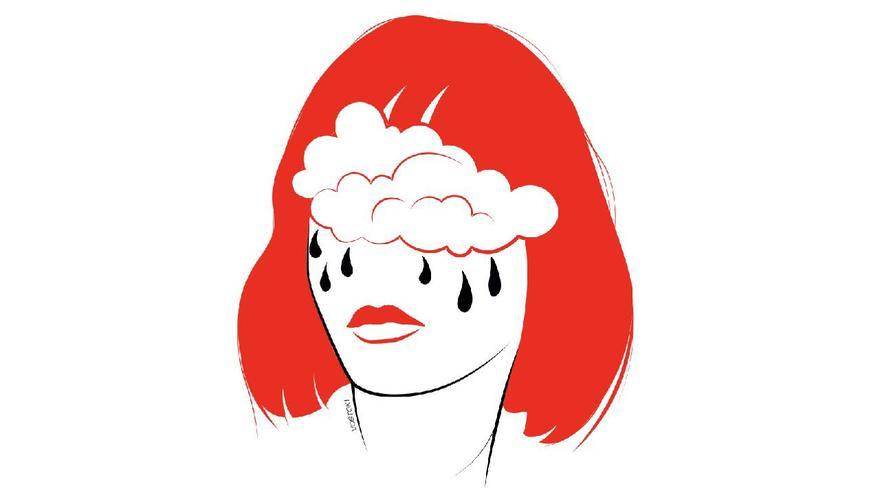
I often wonder what it truly means to be from a village. This question has followed me from almost the first day I stepped foot in university: there I was, small and lost in a very strange place, surrounded by people I didn’t know at all and forced to explain my previous life, my origins, my adolescence that still slipped through my fingers like water that slides and will go but hasn’t gone, should we hold on? and it’s futile. In my mind, in my little universe, I was very clear on how my experience had been as a girl growing up in a village. An emo girl. A queer girl. A chubby girl. An avatar girl from Habbo. However, when it came to words, I couldn’t invoke that reality that covered my entire skin.
The other day I was asked to record an audio for a podcast talking about growing up in a village. About me growing up in a village in the south of Tenerife, in a village that, I later discovered, was not exactly small, not exactly peripheral. The question came to me, the complexity came to me. Impostor syndrome of rurality. It may seem silly, but I have discussed this with many people and most of us agree: the need to advocate for ourselves as people who have been built through experiences far from urban centres borders on that anxiety that repeats to us over and over that we do not have the right to do so because there is something, we do not know exactly what, that separates us from what we believe should be said about it. We don’t dare to say “I’m from a village”, but if we said “we are from the city”, a nonsense as solid and well-crafted as Elsa’s ice castle would grow around us.
I recorded the audio as best as I could. Trying to get the words out with a spoon. I have decided that things can be done with uncertainty. When I’m afraid to speak in public, I convince myself that I can speak with fear and it will still turn out fine. If I’m scared to jump off the pier in El Médano in case I touch the bottom and hurt myself on the rocks and and and, I have a chat with myself convincing me that the feeling of terror doesn’t stop my legs from bending a little and applying force and taking a leap. With these rare impostor syndromes that come when we must name our lives and fit them into certain categories, I try to go down the same path: doubting my experience, not being sure if it fits the mould I want to fit it into, should not equate to silence. The conversation about what has not been definitively decided is also valuable. I would even say it is more valuable: if shame is the mark that points out those issues that have not been talked about, tracing shame makes it possible for us to be aware of what we need to tell.
This last point is something like this: perhaps I feel embarrassed to be naked in front of someone because I haven’t been naked in front of that someone long enough, and overcoming that barrier of fear-no no no I can’t will lead to finding a peace, a comfort. Maybe I tremble in front of the slippery rocks of the pier even knowing there is no risk because I still haven’t managed to jump. And maybe I stare at the wall for hours wondering if I have the right to talk about my own rurality because I still don’t understand it, because keeping quiet and leaving it for later is precisely what prevents me from understanding it.
What is more useful than the self-imposed silence by people who do not have an experience that does not fit the common narrative of the village, perhaps, for example, because our villages are hyper-touristy or gentrified? Of course, the narrative that expands the story and, stepping out of it, tells the truth. I am very annoyed by those visions of rurality that romanticize without reflection and always in the same way, that always operate under the same light as if the villages were all identical settings like tourist areas, the same shops the same doors the same sensations the same repeated days one after the other and the same voices and the same problems little lighter bought in Lanzarote that they place in Formentera. Who invented that story?
[–>
I suppose it is once again a story of perspectives. Of from and for whom it is told. Of which imaginary holds more value, the one that is crafted so it can be understood or the one that is slowly built, complicatedly, with necessary fear, shame, confusion, without the need to be understood and with the need to understand. If I tell my life for myself, I do not fear. If I tell it for others, I do. Perhaps the key is to observe ourselves without the weight of the narrative and build the one that fits us.
Subscribe to continue reading
















